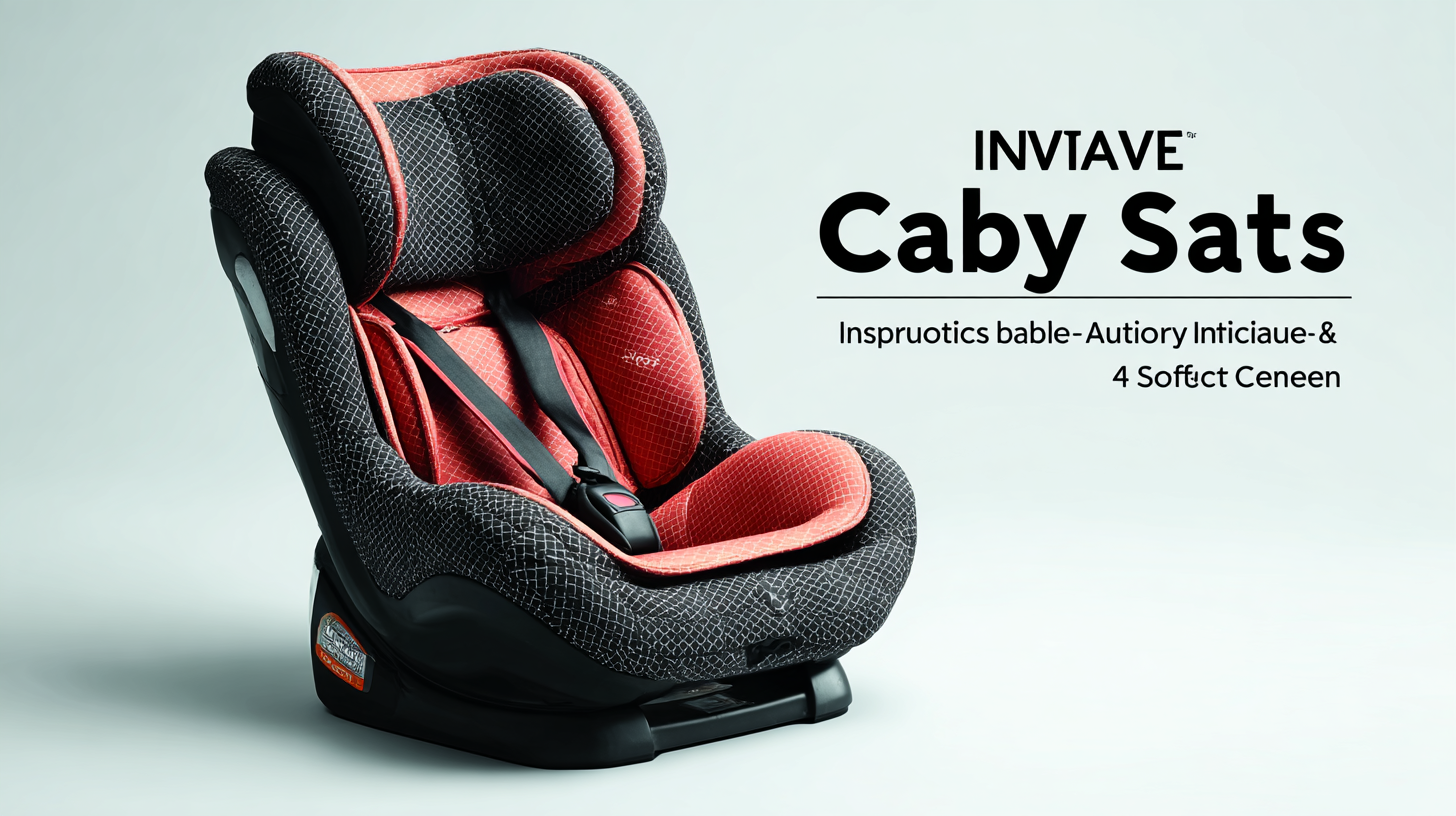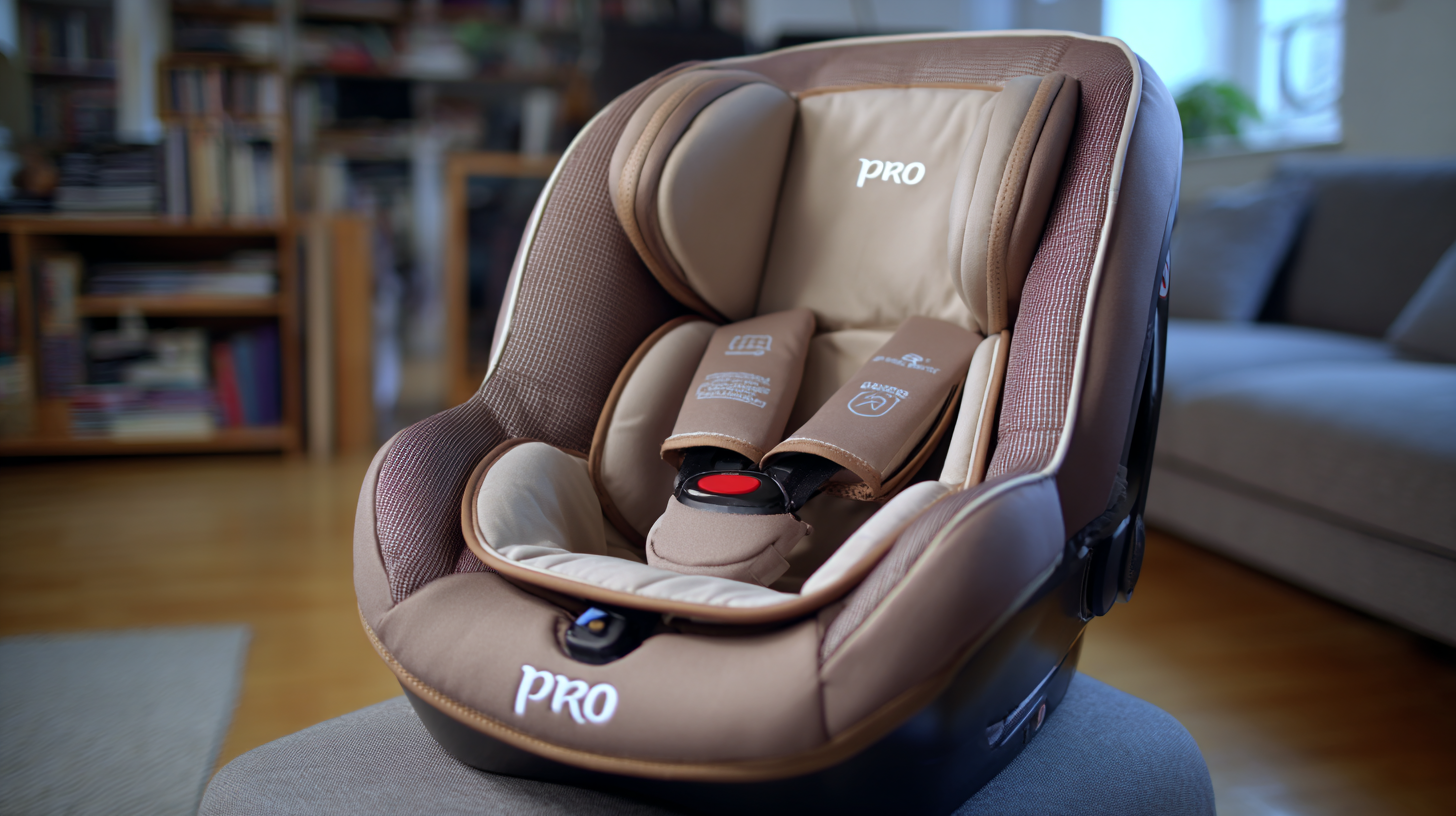In the realm of child safety, baby car seats are a crucial component in protecting our little ones during road travel. According to the National Highway Traffic Safety Administration (NHTSA), proper use of child safety seats can reduce the risk of fatal injury by 71% for infants and 54% for toddlers in passenger cars. However, as parents become increasingly aware of safety standards and innovative designs, concerns arise regarding the potential limitations of conventional baby car seats. Issues such as weight, bulkiness, and comfort, especially during long journeys, prompt the exploration of innovative alternatives that promise enhanced safety features while ensuring maximum comfort for infants and toddlers. This blog will delve into the problems associated with traditional baby car seats and highlight cutting-edge solutions that prioritize both safety and comfort in every ride.

In recent years, the landscape of baby car seat design has been transformed by the advent of innovative materials that prioritize both safety and comfort. One notable example is the use of advanced polymers that are not only lightweight but also exhibit exceptional energy absorption properties. These materials can effectively reduce the force experienced by a child during a collision, offering enhanced protection without significantly increasing the weight of the seat. Additionally, the inclusion of breathable mesh fabrics promotes airflow, ensuring that little passengers remain comfortable during long journeys.
 Another exciting development in baby car seat technology is the integration of memory foam. This material conforms to the child's body shape, providing individualized support and reducing pressure points, which can be crucial for comfort during extended use. Furthermore, the application of antimicrobial coatings on fabrics serves to keep the seat clean and hygienic, an important consideration for any parent. As brands continue to experiment with these innovative materials, parents can feel more at ease knowing that modern baby car seats are designed to provide not just safety, but also a cozy environment for their precious cargo.
Another exciting development in baby car seat technology is the integration of memory foam. This material conforms to the child's body shape, providing individualized support and reducing pressure points, which can be crucial for comfort during extended use. Furthermore, the application of antimicrobial coatings on fabrics serves to keep the seat clean and hygienic, an important consideration for any parent. As brands continue to experiment with these innovative materials, parents can feel more at ease knowing that modern baby car seats are designed to provide not just safety, but also a cozy environment for their precious cargo.
The landscape of baby car seats is evolving rapidly, with emerging technologies paving the way for enhanced safety and comfort.
One of the most promising advancements is the integration of artificial intelligence (AI) into car seat design. Smart baby car seats equipped with AI can monitor the well-being of the child, adjusting positioning and support based on real-time data.
For instance, these seats can detect if the baby has shifted and automatically adjust to ensure optimal posture, reducing the risk of discomfort during long trips.
In addition to AI, new smart safety features such as integrated crash detection systems are being incorporated into baby car seats.
These systems can alert parents in case of a collision, ensuring they can respond immediately.
Some models even feature emergency response connectivity, which can directly notify authorities and medical services, providing peace of mind during travel.
With these innovative technologies, parents can now focus more on their journeys and enjoy the road, knowing their little ones are safeguarded by the latest advancements in car seat safety.
When selecting baby car seats, comfort isn't just a luxury; it's a critical aspect of safety and wellbeing. A study published by the National Highway Traffic Safety Administration (NHTSA) indicates that improperly fitted seats can increase the risk of injury in an accident by up to 75%. This statistic underscores the importance of not only ensuring the car seat meets safety standards but also that it is designed with ergonomics in mind. Features such as contoured seats, adjustable headrests, and side-impact protection contribute significantly to a child’s comfort during travel, encouraging longer and safer trips.
Moreover, the Ergonomics and Human Factors Society reports that a well-designed car seat can reduce stress on a child’s spine and improve circulation, which is particularly important for infants during extended car rides. The right angle of recline and adequate support can prevent slumping and promote healthy growth. By integrating ergonomic principles into the design, manufacturers not only enhance the comfort of baby car seats but also optimize safety, reflecting an industry trend towards prioritizing child-centric design. As parents become more informed about these aspects, the demand for innovative solutions in car seat technology continues to grow, shaping a market that values both safety and comfort in equal measure.
As regulatory changes in baby car seat safety standards evolve, manufacturers are pushed to innovate, resulting in new designs that prioritize both safety and comfort. These updates may include enhanced crash test requirements and the integration of advanced materials that absorb impact better than traditional designs. The focus is not just on making seats more secure but also on improving the user experience for parents and caregivers, ensuring ease of installation and daily use.
When selecting a baby car seat, it's crucial to look for products that meet or exceed the latest safety regulations. One tip is to always check for labels indicating compliance with current safety standards, which can vary by region. Additionally, consider choosing car seats that offer flexible features, such as modular designs that can adapt as your child grows, promoting longevity and value. Lastly, looking for seats with comfortable padding and a good recline angle can significantly improve both the baby's comfort and the ease of use for parents during long journeys.
As we move toward a more sustainable future, the baby car seat manufacturing industry is increasingly adopting eco-friendly practices to ensure safety without compromising our planet. In 2025, we envision a landscape where manufacturers prioritize the use of recyclable materials, reducing the carbon footprint associated with production. By selecting bio-based plastics and organic fabrics, brands can minimize environmental impact while still delivering the safety and comfort that parents expect for their little ones.

Moreover, innovative manufacturing processes, such as 3D printing, is set to revolutionize the way baby car seats are created. This technology not only allows for customization to better fit the unique needs of families but also significantly cuts down on waste material. Incorporating modular designs will also make it easier to replace parts or upgrade features without needing to purchase a completely new seat, extending the product's lifecycle and appealing to eco-conscious consumers. By embracing these sustainable practices, the baby car seat industry is not just focused on immediate safety but is committed to fostering a healthier planet for future generations.
TradeManager
Skype
VKontakte

